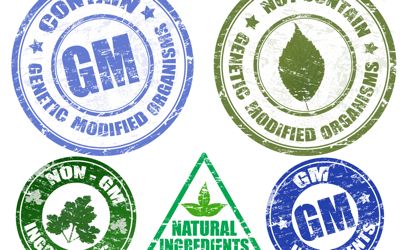 anisms (GMOs) have sprouted across more than two dozen states, including two successful bills in Maine and Connecticut, along with measures that came up short at the ballot box in California and Washington.
anisms (GMOs) have sprouted across more than two dozen states, including two successful bills in Maine and Connecticut, along with measures that came up short at the ballot box in California and Washington.But proposed federal legislation introduced on Wednesday would put an end to that by prohibiting any mandatory labeling of genetically engineered food. It would also prohibit voters from proposing initiatives for labeling genetically engineered food at the state level.
The bill, named the “Safe and Accurate Food Labeling Act,” was introduced by U.S. Rep. Mike Pompeo (R-KS). The bill aims to ensure that America can continue to produce an adequate amount of food to “feed the world,” Pompeo reportedly told a group of agriculture journalists.
Pompeo added that since there exists no evidence that genetically engineered foods posed a health or safety risk to humans, GMO labels mislead consumers into thinking there may be a safety risk.
Such legislation has received strong support from the Coalition for Safe and Affordable Food, a group of industry organizations including the Grocery Manufacturers Association (GMA), which has been a major opponent of GMO-labeling efforts.
Proponents of GMO labeling call the bill an affront to states’ rights and an attack on consumers who wish to know what they’re buying.
“It’s clear that Congressman Pompeo and the GMA are willing to do whatever they can to immediately prohibit states from enacting sensible legislation for consumers to have the right to know what they’re buying and feeding their families,” said Colin O’Neil, director of government affairs at the Center for Food Safety (CFS).
CFS is one of the leading proponents for GMO labeling, having donated $455,000 to labeling efforts in Washington state during the 2013 elections. At the same time, GMA spent $11 million to help defeat Washington’s mandatory labeling proposal.
Pompeo’s bill would reportedly require food companies to submit new genetically modified foods to the U.S. Food and Drug Administration for review. The food under review would be “base products,” such as vegetables or fruits, as opposed to the final food product.
Pompeo added that the bill would not affect companies labeling their foods as “GMO-free.”
O’Neil called the bill “unworkable,” saying it offered no solutions to the debate over GMO labeling. He said that the bill was unprecedented in its push to preempt state law without a federal standard in place, but that the food industry should not be underestimated in its opposition to GMO labeling.
“The moneyed interests pushing this bill so urgently have a sizeable war chest,” O’Neil said. “It’s clear that they’re going to do whatever it takes to keep consumers in the dark.”
As labeling efforts crop up in more states ahead of the next election cycle, the industry is seen as looking for a way to cut off new labeling measures before they make it to the ballot box, where millions more are likely to be spent on advertising campaigns.
Money spent on opposition campaigns to California’s GMO-labeling Proposition 37 topped $46 million, while campaigns in favor of labeling raised $9.2 million. In Washington, GMO-labeling Initiative 522 saw $22 million in opposition funding and $8.2 million in support.
Two states, Maine and Connecticut, have passed GMO-labeling laws, but the rules for both are contingent upon other states also approving labeling laws.
A labeling law in Vermont could be the first passed without such contingencies. It has cleared votes in the state’s House and Senate, though it faces a legal battle from the food industry. Voters may also push forward with GMO labeling in Oregon and Colorado this November.
Roughly 60 to 70 percent of processed foods in grocery stores contain at least one genetically modified ingredient, according to GMA.





